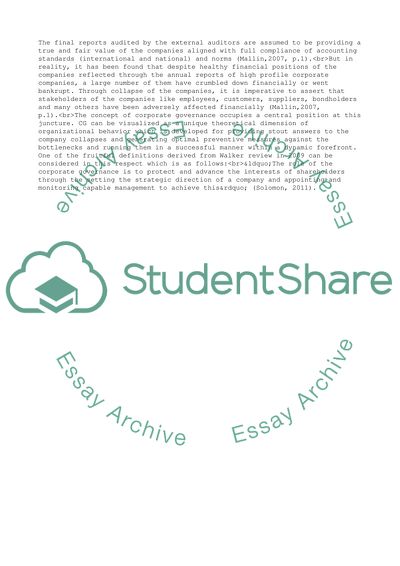Cite this document
(Does Stakeholder Theory Provide a Better Basis for the Development of Coursework - 2, n.d.)
Does Stakeholder Theory Provide a Better Basis for the Development of Coursework - 2. Retrieved from https://studentshare.org/business/1791369-does-stakeholder-theory-provide-a-better-basis-for-the-development-of-corporate-governance-in-the-21st-century-than-agency-theory
Does Stakeholder Theory Provide a Better Basis for the Development of Coursework - 2. Retrieved from https://studentshare.org/business/1791369-does-stakeholder-theory-provide-a-better-basis-for-the-development-of-corporate-governance-in-the-21st-century-than-agency-theory
(Does Stakeholder Theory Provide a Better Basis for the Development of Coursework - 2)
Does Stakeholder Theory Provide a Better Basis for the Development of Coursework - 2. https://studentshare.org/business/1791369-does-stakeholder-theory-provide-a-better-basis-for-the-development-of-corporate-governance-in-the-21st-century-than-agency-theory.
Does Stakeholder Theory Provide a Better Basis for the Development of Coursework - 2. https://studentshare.org/business/1791369-does-stakeholder-theory-provide-a-better-basis-for-the-development-of-corporate-governance-in-the-21st-century-than-agency-theory.
“Does Stakeholder Theory Provide a Better Basis for the Development of Coursework - 2”, n.d. https://studentshare.org/business/1791369-does-stakeholder-theory-provide-a-better-basis-for-the-development-of-corporate-governance-in-the-21st-century-than-agency-theory.


